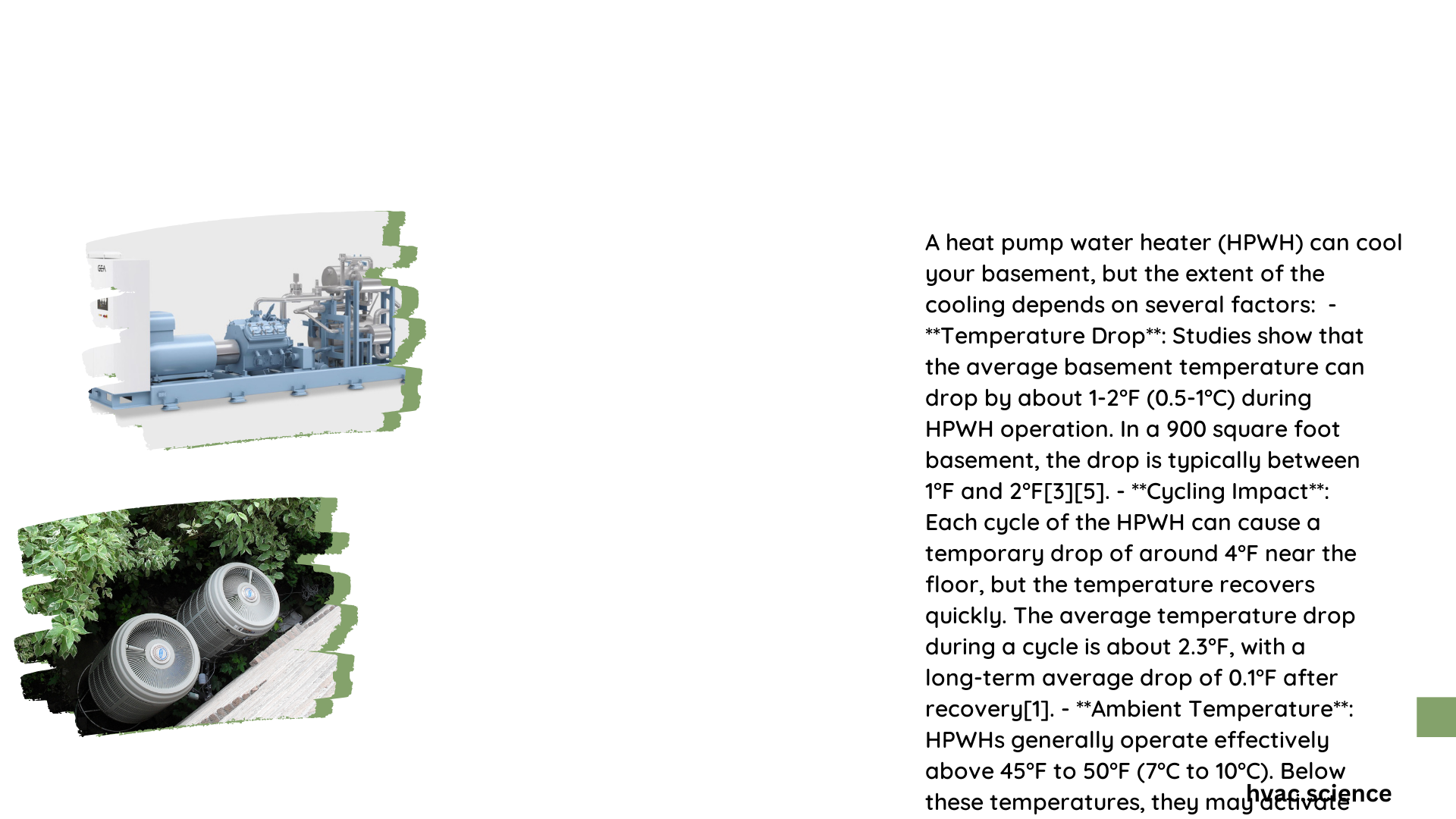Heat pump water heaters can create a noticeable temperature reduction in basement environments, typically causing a modest 1°F to 2°F drop during operational cycles. Homeowners concerned about basement cooling will find that these systems extract heat from surrounding air to warm water, resulting in a mild but measurable temperature decrease. Understanding the specific dynamics of this temperature change helps homeowners make informed decisions about installation and potential mitigation strategies.
What Temperature Drop Can You Expect in Your Basement?
Heat pump water heaters generate a predictable cooling effect in basement spaces. Here’s a detailed breakdown of potential temperature impacts:
Typical Temperature Reduction Scenarios
| Basement Size | Average Temperature Drop | Recovery Time |
|---|---|---|
| 900 sq. ft | 1°F – 2°F | 4 hours |
| 600 sq. ft | 0.8°F – 1.5°F | 3-4 hours |
| 1200 sq. ft | 1.5°F – 2.5°F | 4-5 hours |
Factors Influencing Basement Cooling
Several critical elements determine the precise temperature reduction:
- Basement Insulation Quality
- Well-insulated basements experience minimal temperature fluctuations
- Poor insulation amplifies cooling effects
-
Recommended R-value for basement walls: R-10 to R-15
-
Heat Pump Water Heater Specifications
- Cooling capacity ranges from 10,000 to 15,000 BTU/hr
- Equivalent to approximately 3/4 ton air conditioning unit
- Energy extraction rate: Approximately 2/3 of heat from room air
How Does Heat Extraction Work?
The heat pump water heater operates by transferring thermal energy from the surrounding environment. During this process, it:
- Removes heat from basement air
- Uses extracted heat to warm water
- Generates a cooling effect similar to a small air conditioner
- Consumes approximately 3,000 BTU/hr in heat pump mode
Potential Benefits of Basement Cooling
While temperature reduction might seem concerning, the process offers unexpected advantages:
- Natural dehumidification
- Improved air circulation
- Potential reduction in moisture-related issues
- Enhanced energy efficiency
Mitigating Basement Temperature Drop
Homeowners can implement several strategies to minimize cooling effects:
- Install additional insulation
- Seal potential air leakage points
- Consider supplemental heating sources
- Choose high-efficiency heat pump water heater models
Performance in Cold Environments
Heat pump water heaters demonstrate varying efficiency based on ambient temperatures:
- Optimal operating range: 60°F – 65°F
- Minimum recommended temperature: 50°F
- Efficiency decreases below 45°F
- Backup resistance heating may activate more frequently in colder conditions
Professional Recommendations
Experts suggest:
– Conducting a professional energy audit
– Evaluating basement’s thermal characteristics
– Selecting appropriate heat pump water heater model
– Implementing complementary insulation strategies
Technical Considerations
- Coefficient of Performance (COP): 2 to 4
- Energy consumption: Approximately 3,000-11,530 BTU/hr
- Typical temperature recovery: Within 4 hours
Conclusion

Understanding how cold a heat pump water heater will make your basement involves analyzing multiple interconnected factors. While temperature drops are typically modest, strategic planning and proper installation can optimize performance and minimize potential cooling effects.
